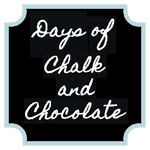Help! My Child Can't Read!
As a second grade teacher, I heard this sentence from too many parents to count. Every parent wants what is best for his or her child and we all want our children to be doing all the things they are "supposed" to be doing successfully. I could go on and on about the pressure we place on children at a young age, the loss of play and socialization, and the value placed on academics at the expense of learning experiences. But I'll save you all the speech. Let's get down to brass tacks. Your child is not reading at the level you and/or his teacher feels is appropriate.
What can you do? Well, you can hire me for $50 an hour! Or you can try some of these reading strategies at home. These are strategies to use with young children and emergent readers and focuses mostly on decoding, using phonemic rules and awareness to read the words. (We'll talk comprehension another day).
1. Let your child choose the text.
If you have a struggling reader, don't be hung up on WHAT he is reading. Picture books are always appropriate for the struggling reader. In fact, those picture clues help with comprehension. Comic books, a cereal or product box, can labels, self-written text, joke books, anything. The objective is to get your child interested in reading! We can upgrade your child's reading choices later.
2. Read to your child.
We know it matters whether or not your child is read to at an early age. But don't let that shared reading experience fall by the wayside once your child begins reading. Take that opportunity to talk to your child about the types of literature she is interested in. When Molly was struggling, I would make deals with her. For every page she read to me, I would read 3 or whatever. Kids need a break from something that is difficult to do and by reading to your child you allow her to appreciate books without having to stress about it.
3. Choral read
I did this ALL the time in second grade. We read everything together. Every worksheet, every picture caption, every set of directions was read together as a class. There are so many benefits to choral reading but I like to use it for fluency practice. Fluency is the rate of speech and smoothness of reading. Your child will work on keeping up with you and will hear how you handle certain reading situations such as punctuation or dialogue. And a child will be less self conscious about his reading if he's reading with you at the same time.
4. Model reading and talk to yourself
Children do what we do. So let your child hear your thought process while you are reading. Say things like "Hmmm, I better read that again" or "I know that says cat.../c/ /a/ /t/." Let them hear you sound out words. You will feel like weirdo but your kids will benefit.
5. Play word games.
Reading doesn't always have to happen with a book. Pick a word family like -it. Use magnet letters or just a paper and pencil to make words. Make nonsense words that follow a particular pattern. For instance. Rhyme words in the car on the way to wherever or read rhyming books and have your child read (or guess) the next word in a verse.
Ex: "Mary had a little lamb, its fleece was white as snow. And everywhere that Mary went the lamb was sure to..........!"
"Let's play the -it family! Let's put a B in front. What do we have? Bit! Now take the B away and put an L. Now what word do we have? Lit! Now let's put make a different family! Let's take the I away and put an O. Now we have Lot! Let's take the L away and put a Z. Zot!"
Ok, we know zot isn't a word but that's ok. It continues to follow the phonemic pattern.
Tap out the individual sounds of simple words with your fingers.
6. Sing the letter sounds.
If your child is having a hard time learning their letter sounds, put the alphabet to music but use the letter sound instead of the letter name.
Example: Sung to Twinkle, Twinkle
/a/ /a/ apple
/b/ /b/ bus
/k/ /k/ cat (hard C)
and
/d/ /d/ dog
etc. Sing it every day!
7. Write
Reading and writing are two sides of the same coin. Have your child write emails to Grandma (and have her write him back!), write short stories, make lists, caption his artwork, make greeting cards, keep a field journal. Do the writing until he or she can write themselves. Don't get hung up on spelling. PLEASE. Let your child use letter sounds to write. If she writes kt instead of cat, that's ok. In fact, it's great. She is hearing the beginning and end sounds. We used to call it inventive spelling. Some people call it developmental spelling. You can call it Charlie for all I care. It is ok to let them do it. We'll cram spelling down their throats later.
8. Relax
The more anxious you are about your child's reading the more anxious he or she will be. Reading is developmental and just like walking or talking, you can't force your child to do it before he or she is ready. As long as you are setting up an environment that facilitates your child's acquisition of reading skills it will happen...it will click. Show them that reading is pleasurable and worth the work!
If it doesn't click, talk to your teacher. He or she will be able to identify the areas in which your child is having the most difficulty. Plus, he or she can refer you to the next step to take.
Plus, I'll tell you a secret. You should all be asking your teachers what strategies they are using to facilitate your child's improvement. If you have a teacher that isn't able to discuss specific strategies then maybe your child's problem isn't really his or hers.
If you have any questions, feel free to email me at juniper20@gmail.com. I'll answer your questions to the best of my abilities! These are not the only things you can do and every teacher may have his or her own approach. These are tactics I used in my classroom and that I found helpful for those who are reluctant or struggling to read. I am not a developmental diagnostician and you should always talk to your school if you have serious concerns about your child's academic skills.
Cheers!
Jenny















<3 You rock, Jenny.
ReplyDeleteWay cool! Some extremely valid points! I appreciate you penning this post Are there children's programs like Hooked on Phonics for British English?
ReplyDeleteI’ve done some searching on Google for other programs but I haven’t' had much luck…